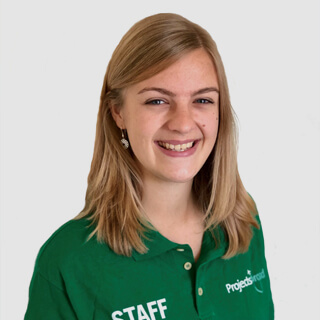I spent four weeks as a Physiotherapy volunteer at Home of Hope in Cambodia. Home of Hope is set up by Catholic brothers who take care of boys and men, as well as housing teenagers and men diagnosed with HIV/AIDS. Before I left, the only information I had about the centre is that it houses boys with “severe mental and physical disabilities”, I had no idea what therapy may involve and how the children would present.
A lot of therapy is around contracture prevention, improving sitting balance, sensory stimulation using toys and textures and assisted walking practise. There is a therapy room, serving for equipment storage and individual therapy space for children, as well as a sensory room. While I was there, this was not used and very dirty. We fully cleaned it out and at the time of leaving, it was being re-equipped with more textures and mobiles. The sensory rooms work really well with the boys, away from the noise and distraction the boys are calmer and relaxed.
Although the diagnoses are vague, some conditions include cerebral palsy, polio, Down’s syndrome, autism and meningitis related problems. The staff and brothers are very friendly and the centre’s new physiotherapist Sante is so happy to meet you and learn skills from you. He is so helpful with translations and assisting therapy.
Volunteering in Cambodia
During the four weeks, you develop an attachment to all the children. I was not only delivering physiotherapy, but also multi-sensory stimulation, speech and language therapy and spending time playing with the children. With most children, therapy isn’t centred on improving gross movement abilities, but improving their quality of life.
You must be prepared to work independently. As a student, I am used to having a supervisor to guide and help me. Here, you must use your own skills and brain; it is challenging but so rewarding! Alongside therapy, we went through diagnoses and observations, updating the children’s files and paperwork. Creating treatment plans was really useful; by highlighting problems it was easier to develop a plan for example: dissociation exercises and passive stretching to prevent contractures, toy stimulation to encourage head control and posture, sitting on unstable surfaces to work unconscious postural muscles to improve sitting balance.
A highlight was on my last day. An 18 month old boy with cerebral palsy was very under developed. He was unable to sit and had poor head and neck control. When I was first introduced to him, he expressed no emotions, except an occasional smile. After encouraging time spent on his tummy and forearms and using toys to encourage head movements he was improving control. By stimulating his legs and hips to encourage rolling, he independently rolled from his back to tummy and vis-versa. On my last day, he rolled halfway across the floor and was able to maintain cross-legged for 3x30 seconds. He has a long way to go, and hopefully through future therapy he will progress further.
Living abroad
Cambodia is extremely hot, so be prepared for humidity and sweating 24/7! While living in the apartments you get to meet loads of other volunteers and share breakfast and dinner together. Food is varied, you get a packed lunch to take to placement or bring bread/fruit from breakfast. The apartment rooms have double beds and shared bathrooms. You may have a single or double room with another volunteer which is good fun as you are never alone!
At the weekends you are able to go sight-seeing around the capital. You end up touring around the country via night buses and hostel stays. For example, eight volunteers went for three days to Siem Reap to visit the Angkor temples and the famous Pub Street. It’s such a sociable experience and you make some great friends from all over the world!
Why volunteer at Home of Hope?
If you are a student Physiotherapist, this experience is so different to anything else. Being in a new setting and working independently will help you discover your creativity, initiative and skills. Looking past the initial problems, to develop treatment plans to improve quality of life opens your eyes to how therapy benefits those with severe disabilities. The children would really benefit from consistent therapy and care from volunteers. The time you spend with them is invaluable, so rewarding for both you and the children.
I learnt how physiotherapy can benefit those severely affected by disabilities, how to overcome difficult communication barriers, the importance of observation and how to act creatively on the spot! I am more confident in my abilities to assess and treat children. My heart has softened towards working with those with disabilities; the hardest thing about this project is leaving!

Are you interested in joining this project?
If so, one of our experts can help.
Contact Us on:
This is a personal account of one volunteer’s experience on the project and is a snapshot in time. Your experience may be different, as our projects are constantly adapting to local needs and building on accomplishments. Seasonal weather changes can also have a big impact. To find out more about what you can expect from this project we encourage you to speak to one of our friendly staff.
Our accreditations


















